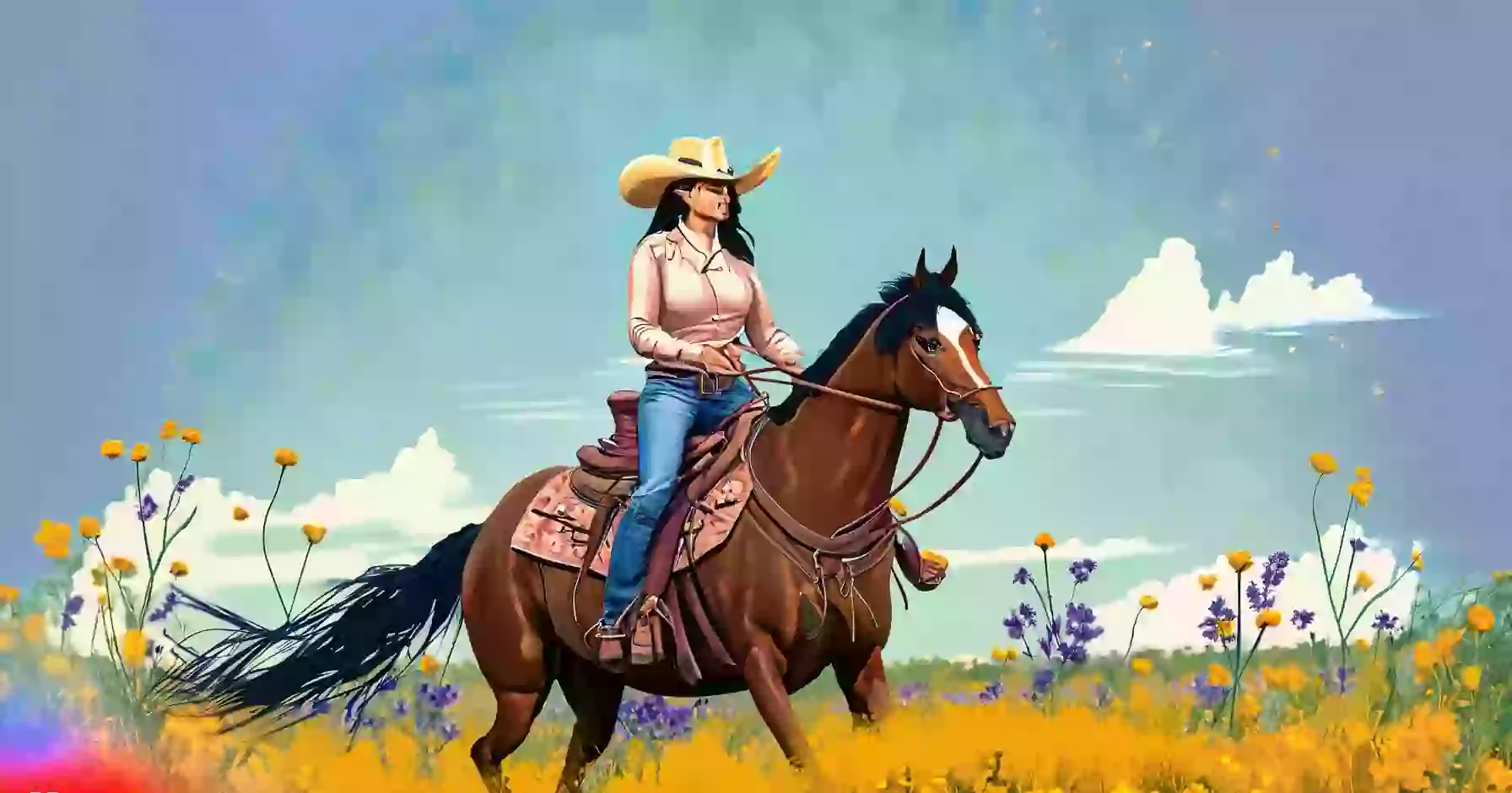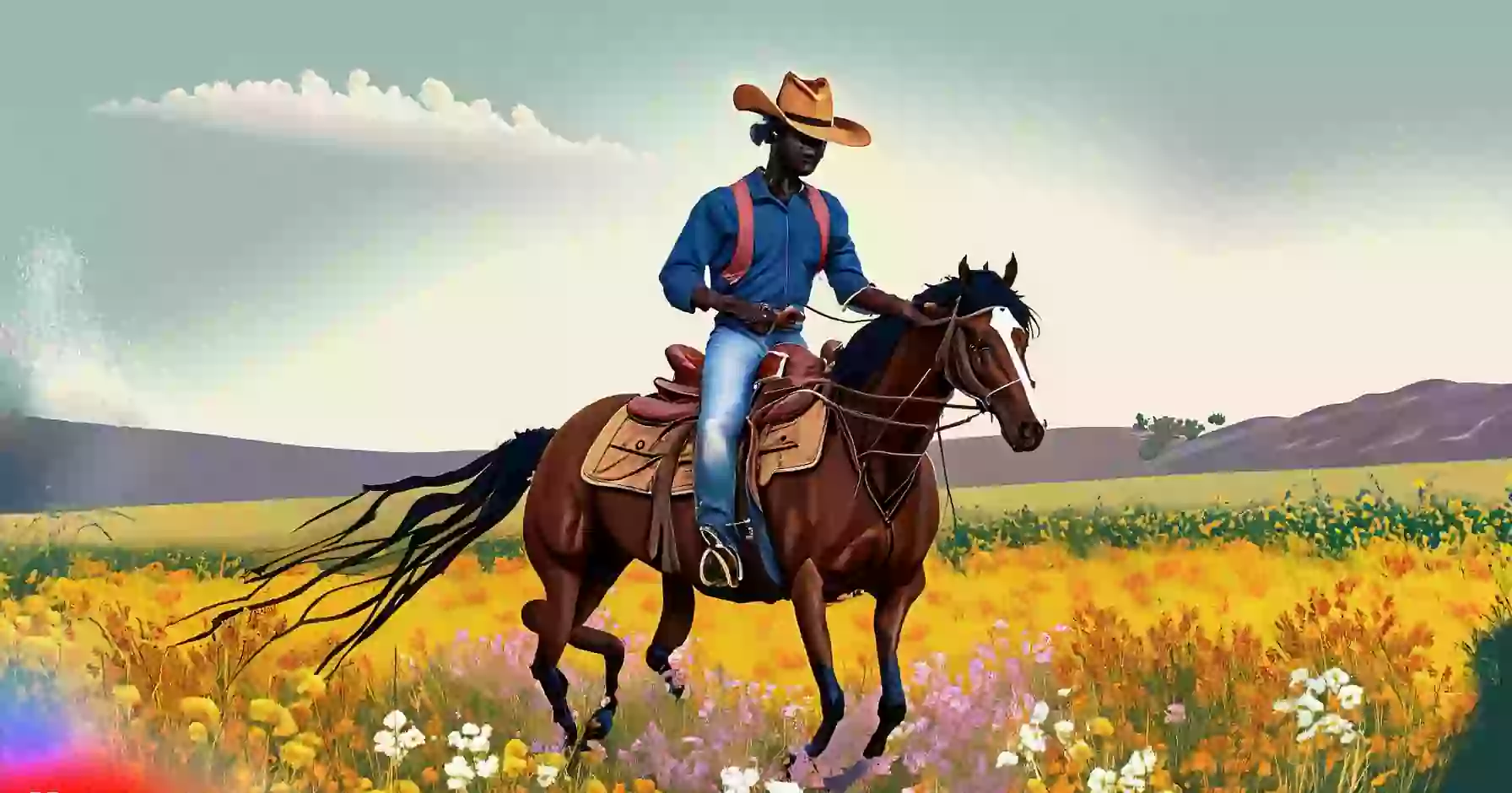The cowboy is a cultural icon of the American West, and their image has been shaped by movies, books, and television shows. But what does it really mean to be a cowboy?
There is no one answer to this question, as the definition of a cowboy has evolved over time. However, there are some common qualities that most people would associate with a cowboy. These include a love of the outdoors, a strong work ethic, and a rugged individualism. Cowboys are also typically skilled horsemen and cattlemen, and they are known for their independence and their willingness to work hard.
In this essay, we will explore the history of the cowboy and the different qualities that make up a true cowboy. We will also look at the modern cowboy, and how the role of the cowboy has changed in recent years.
So what makes a cowboy? It is a question that has been asked for centuries, and there is no easy answer. But one thing is for sure: the cowboy is a symbol of the American West, and their legacy continues to inspire people all over the world.
50 Most Important Things That Make a Cowboy.
- Love of the outdoors.
- Strong work ethic.
- Rugged individualism.
- Skill with horses.
- Knowledge of cattle.
- Ability to work under pressure.
- Teamwork skills.
- Problem-solving skills.
- Physical fitness.
- Honesty.
- Integrity.
- Courage.
- Resilience.
- Optimism.
- Humor.
- Loyalty.
- Respect.
- Tradition.
- Pride.
- Myth and legend.
- Ability to ride a horse bareback.
- Ability to rope a calf or steer.
- Ability to brand cattle.
- Ability to doctor sick or injured cattle.
- Ability to drive cattle long distances.
- Ability to camp outdoors.
- Ability to cook over an open fire.
- Ability to fix equipment.
- Ability to shoot a gun accurately.
- Knowledge of first aid.
- Ability to survive in the wilderness.
- Ability to work with others.
- Ability to deal with difficult situations.
- Ability to make quick decisions.
- Ability to stay calm under pressure.
- Ability to think on your feet.
- Ability to learn new things quickly.
- Ability to adapt to change.
- Ability to work long hours.
- Ability to be away from family and friends for long periods of time.
- Ability to deal with the elements.
- Ability to be self-sufficient.
- Ability to take care of themselves.
- Ability to be honest and trustworthy.
- Ability to be fair and just.
- Ability to be courageous.
- Ability to be resilient.
- Ability to be optimistic.
- Ability to have a good sense of humor.
- Ability to be loyal, respectful, and proud.
Love of the outdoors
Cowboys spend their lives working in the outdoors, so it’s essential that they love being in nature. They must be comfortable with all kinds of weather conditions and be able to handle the physical demands of the job.
Strong work ethic
Cowboys are known for their hard work and dedication. They are willing to put in long hours and do whatever it takes to get the job done.
Rugged individualism
Cowboys are independent and self-reliant. They are able to work alone and take care of themselves in difficult situations.
Skill with horses
Horses are essential to the cowboy’s work, so it’s essential that they be skilled riders and handlers. They must be able to control their horses in all kinds of situations, from the open range to the rodeo arena.
Knowledge of cattle
Cowboys must have a deep understanding of cattle. They must know how to handle them, how to doctor them, and how to get them to do what they want.
Ability to work under pressure
Cowboys often have to work in high-stress situations, such as when they are branding cattle or driving them through rough terrain. They must be able to stay calm and focused under pressure.
Teamwork skills
Cowboys often work as part of a team, so it’s essential that they be able to cooperate and communicate effectively with others. They must be able to work together to get the job done safely and efficiently.
Problem-solving skills
Cowboys often encounter unexpected challenges, so they must be able to think on their feet and solve problems quickly. They must be able to assess a situation and come up with a plan to deal with it.
Physical fitness
Cowboys must be physically fit to do their job. They must be strong and have good stamina to be able to work long hours in all kinds of weather conditions.
Honesty
Cowboys are known for their honesty and integrity. They are trustworthy and reliable, and they always keep their word.
Integrity
Cowboys also have a strong sense of integrity. They do what they believe is right, even when it’s difficult.
Courage
Cowboys are courageous and fearless. They are not afraid to take risks and face danger.
Resilience
Cowboys are resilient and adaptable. They bounce back from setbacks and are able to deal with difficult situations.
Optimism
Cowboys are optimistic and always have a positive attitude. They believe that anything is possible and never give up on their dreams.
Humor
Cowboys have a good sense of humor and can find the funny side of even the most difficult situations.
Loyalty
Cowboys are loyal to their friends, family, and community. They are always willing to help others and stand up for what they believe in.
Respect
Cowboys respect themselves, others, and the land. They treat everyone with kindness and courtesy, regardless of their background or beliefs.
Tradition
Cowboys are proud of their heritage and traditions. They are always willing to pass on their knowledge and skills to the next generation.
Pride
Cowboys take pride in their work and their way of life. They are proud to be cowboys and to represent the American West.
Myth and legend
Cowboys are often surrounded by myth and legend. They are seen as symbols of the American West and the values of freedom, independence, and hard work.
Ability to ride a horse bareback
This is a skill that requires balance, strength, and agility. It is also a sign of confidence and mastery over the horse.
Ability to rope a calf or steer
This is a skill that requires precision and timing. It is also a sign of skill and experience with horses and cattle.
Ability to brand cattle
This is a skill that requires knowledge of cattle and the ability to use a branding iron safely. It is also a sign of ownership and responsibility for the cattle.
Ability to doctor sick or injured cattle
This is a skill that requires knowledge of animal anatomy and first aid. It is also a sign of compassion and care for the animals.
Ability to drive cattle long distances
This is a skill that requires knowledge of the land and the ability to lead and direct a herd of cattle. It is also a sign of leadership and experience.
Ability to camp outdoors
This is a skill that requires knowledge of survival skills and the ability to live off the land
What are the different types of cowboys?
There are several different types of cowboys that played important but distinct roles in the cattle industry in the American West. Some of the main types include the cattle drive cowboy, the ranch cowboy, the rodeo cowboy, and the mounted cowboy or buckaroo. Cattle drive cowboys moved cattle over long distances to get them to market along major cattle trails.
Ranch cowboys worked on a home ranch doing things like branding and breaking horses. Rodeo cowboys competed in rodeo events that showcased skills like roping and riding needed for ranch work. Buckaroos were cowboys who worked with horses and cattle in the Pacific Northwest and California. Each type involved specialized skills and hard work to handle cattle and horses.
What are the skills and knowledge that a cowboy needs?
A cowboy needed a wide array of skills and knowledge to do their job well. Important skills included horsemanship, roping, branding, and cattle handling skills needed to herd, drive, brand, and care for cattle. Knowledge of cattle behaviors, health needs, and instincts were crucial. Navigation abilities and survival skills were essential for cattle drives and range work.
Ranch and leathercraft skills like constructing shelters, repairing equipment, and braiding reins were also vital. Cowboys also had to be brave, resilient, self-reliant, and quick thinking to handle the demands and dangers of their work. The job required living and working outdoors in all conditions, so strength and endurance were essential. The mythic cowboy hero embodied these rugged skills and knowledge.
What are the challenges of being a cowboy?
Being a cowboy was a challenging job, both physically and mentally. Cowboys faced extreme weather from drought to blizzards, food shortages, injuries from handling unruly livestock, conflicts with Native American tribes, and dangers like snakebites and stampedes on cattle drives. The job meant being isolated outdoors doing grueling manual labor with little comfort.
The pay was low and accidents could permanently injure or kill. Lawlessness also plagued cowtowns, posing threats like robbery and violence. Cowboys had to be ready to use their gun or fists to assert themselves. Though romanticized, a cowboy’s job was extraordinarily taxing. Most did it when young and single, then transitioned to other work as they aged or started families. The cowboy life was one of grit, risk, adventure and sacrifice.
What is the future of the cowboy?
While innovations have changed cattle ranching over time, many predict cowboys will continue thriving in the future by adapting as they always have. Ranches still require skilled horsemen and stockmen to ride the range, tend cattle, and come together at roundup. Rodeo remains popular, helping preserve cowboy skills and culture. Dude ranches let people experience the cowboy lifestyle.
And cowboys continue capturing the public imagination through art, film, music and literature. However, challenges like corporate cattle operations, tech advances that reduce labor, and land access pressures may alter the role. Still, as long as wide-open spaces, livestock and horses remain, the spirit of the cowboy will likely endure by continuing to evolve.
Conclusion.
In conclusion, there is no one definition of what makes a cowboy. However, the qualities listed in this essay are some of the most important ones. Cowboys are individuals who are passionate about the outdoors, hard work, and self-reliance. They are skilled horsemen and cattlemen, and they are known for their independence and their willingness to work hard. The cowboy is a cultural icon of the American West, and their legacy continues to inspire people all over the world.

The cowboy is a symbol of the American spirit. They are the embodiment of hard work, determination, and self-reliance. They are the pioneers who helped to tame the West, and they continue to play an important role in the American way of life.
The cowboy is a dying breed, but their legacy will never be forgotten. They are a part of American history, and they will continue to inspire people for generations to come.
Here are some additional thoughts on what makes a cowboy:
- Cowboys are often seen as symbols of freedom and adventure. They are free to roam the open range, and they face challenges and dangers that most people never have to experience.
- Cowboys are also seen as symbols of masculinity. They are strong, independent, and capable of taking care of themselves.
- However, the cowboy is not just a man’s world. There have been many female cowboys throughout history, and they have faced the same challenges and dangers as their male counterparts.
- The cowboy is a complex and multifaceted individual. They are more than just a stereotype. They are hard-working, dedicated, and passionate about their way of life.
The cowboy is a symbol of the American West, and their legacy continues to inspire people all over the world. They are a reminder of the importance of hard work, determination, and self-reliance. Consider reading >>>. The Qualities of a True Cowboy to learn more.
I am an accomplished author and journalist at Fact Finders Company . With a passion for research and a talent for writing, I have contributed to numerous non-fiction titles that explore a wide range of topics, from current events, politics and history to science and technology. My work has been widely praised for its accuracy, clarity, and engaging style. Nice Reading here at Fact After Fact.








